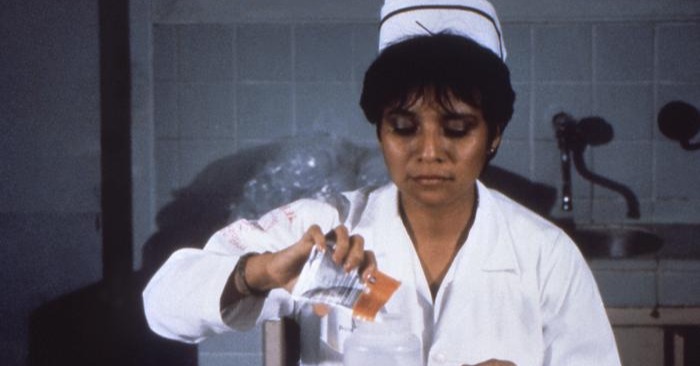
How Much Do Substance Abuse Social Workers Earn?
Top earners in substance abuse social work can earn over [...]

The states with the highest average salaries for psychiatric mental health nurse practitioners are Washington ($160,000), Maryland ($154,000), New York ($153,000), Virginia ($151,000), Colorado ($148,000), Nebraska ($147,000), Delaware ($147,000), South Carolina ($146,000), California ($145,000), and Arkansas ($145,000).
In December 2020, during a dramatic surge in COVID-19 cases, many hospitals gave up psychiatric beds and diverted resources to treat the influx of patients suffering from the coronavirus. And the remaining rooms left for treating psychiatric patients safely often shrank from four beds to one to comply with physical distancing rules. As a result, their capacity to treat patients with mental health disorders significantly diminished.
Now, a few years into the ongoing pandemic, many of those coopted psychiatric beds are again available (and filled), though the pressure on the mental healthcare system in the US hasn’t let up. Indeed, things are becoming worse. In their June 2020 survey results, the CDC found that 40.9 percent of respondents reported an adverse mental or behavioral health condition and that respondents 18-24 years old reported at least one adverse mental health symptom—at a rate of 74.9 percent.
Robert Sheehan, the CEO of the Community Mental Health Association in Michigan, noted that the need for more psychiatric beds and additional healthcare professionals isn’t new: “Before the pandemic, it took an average of 19 phone calls to place a psychiatric patient at a hospital somewhere in the state.” Since then, added restrictions, cuts in funding for mental health initiatives, burned out healthcare professionals, and an aging population of psychiatric practitioners nearing retirement have further heightened the need nationwide for psychiatric and mental health professionals.
The Steinberg Institute in California reports that “the situation is so dire now that two-thirds of all primary care providers in the U.S. say they have trouble finding mental health specialists to refer their patients to.” New York State only has about 612 psychiatrists per 100,000 people, and in Idaho it’s closer to one mental healthcare provider per 100,000 people.
While there is a need for a new generation of psychiatric doctors, much of the work with these vulnerable populations can be performed by psychiatric mental health nurse practitioners. However, while there are 355,000 licensed nurse practitioners certified in a variety of healthcare sectors in the US (including almost 70 percent in family care), only 4.7 percent currently practice in psychiatry and mental health. Increasing their numbers would greatly alleviate the scarcity of mental healthcare providers in the US, particularly in rural areas.
If you’re considering becoming a psychiatric mental health nurse practitioner, this article details psychiatric mental health nurse practitioner salary by state. As well, it covers:
Some states offer a host of job opportunities for psychiatric mental health nurse practitioners (PMHNPs), while others provide higher pay. As in any profession, salary data varies depending on an individual’s years of experience, skill set, and level of education and training. So, if you are an advanced practice nurse (APRN) or newly minted psychiatric mental health nurse practitioner, where are you needed most and where can you make top dollar?
In some cases, job opportunities and a high annual salary are found in the same place. New York ranks high in both—first in demand and number three in the rankings for the highest paying states for psychiatric mental health nurse practitioners, with an average salary of around $153,000/year. The other to paying states are: Washington ($160,000), Maryland ($154,000), Virginia ($151,000), Colorado ($148,000), Nebraska ($147,000), Delaware ($147,000), South Carolina ($146,000), California ($145,000), and Arkansas ($145,000). The U.S. Bureau of Labor Statistics (BLS) lists the national average income for all nurse practitioners at around $118,000, with the majority of salaries falling between $124,000 and $137,000.
The lowest paying states include Iowa ($123,000), Utah ($123,000), North Carolina ($123,000), New Mexico ($119,000), Alabama ($119,000), Kansas ($119,000), Mississippi ($116,000), Florida ($116,000), Georgia ($108,000), and Louisiana ($105,926)—which pull this percentile down to a salary range below the national average.
Of course states like Mississippi, Kansas, Alabama, and Georgia are also some of the states ranked lowest for cost of living. So, what a nurse practitioner makes in some of the lower-paying states sometimes goes further than in places like Hawaii, New York, California, Massachusetts, Oregon, and Alaska where real estate prices and basic living costs are much higher. Other states with a lower cost of living include Nevada, Minnesota, North Dakota, and Wisconsin.
Several cities in California offer the best salaries for PMHNP professionals—paying at least 20% above the national average—including the metropolitan regions of Los Angeles (24% above the national average), San Diego (21%), Riverside (26%), and Sacramento and San Francisco (46%). Other metropolitan regions in the US that pay above the national average include Phoenix, Arizona (32%), Colombia, Missouri (21%) and Newark, New Jersey and Washington, DC, where salaries are above $140,000 annually.
Many states seek nurse practitioners licensed in psychiatric and mental health to help with the ever-increasing demand for psychiatric services. According to Zippia, the top ten states in 2022 with the greatest number of job openings and high average psychiatric nurse practitioner salaries are: New York (8,699 employment opportunities), Pennsylvania (7,908), Ohio (6,420), Massachusetts (5,892), New Jersey (4,098), Connecticut (2053), New Hampshire (1,384), Maine (1,084), Vermont (550), and Alaska (501).
The same Zippia list ranks the worst states in the US for employment opportunities as Missouri, Nebraska, Colorado, Utah, Wyoming, and Kansas. These states also ranked on the lower end of the list of average PMHNP salaries.
Psychiatric mental health nurse practitioners assess, diagnose and treat patients with chronic and acute mental health problems. Many PMHNPs also offer therapy and prescribe medications for patients with mental health disorders or substance abuse issues.
PMHNPs work full-time and part-time—and are required to hold state-specific licensure and a master’s degree in nursing (MSN) or a doctorate of nursing practice (DNP) to practice. They treat patients in pediatric, adolescent, adult, and geriatric practice, and in specialty areas like public health and women’s health. PMHNPs operate in a variety of settings, including hospitals, clinics, correctional facilities, schools, or private practice.
Depending on the populations or individuals they work with, PMHNPs operate collaboratively with teams of doctors and specialists in hospitals and clinics or more independently in private or rural practices. They provide care through telehealth and in-person therapy and examination sessions, and focus on both the mental and the physical health of patients, providing a holistic approach to care.
Each state has specific licensing requirements, but all require holding a Master of Science in Nursing (MSN) and an APRN license. They also mandate logging at least 500 supervised clinical hours in an accredited PMHNP nursing program, completing required licensing-specific coursework (advanced physiology/pathophysiology, advanced health assessment, and advanced pharmacology), and training in at least two areas of psychotherapy. There are MSN programs, like the one offered at Yale’s School of Nursing, that specifically prepare you for a career as a psychiatric mental health nurse practitioner.
PMHNP certification is called the Psychiatric Mental Health Nurse Practitioner (Across the Lifespan) Certification (PMHNP-BC) and is governed by the American Nurses Credentialing Center (ANCC). The certification exam assesses PMHNP clinical skills and knowledge, and must be renewed every five years.
Questions or feedback? Email editor@noodle.com

Top earners in substance abuse social work can earn over [...]

Education requirements for nurses in the U.S. are becoming more [...]

Nurse practitioners (NPs) typically earn six figures, but NP salaries [...]

A Doctor of Nursing Practice (DNP) degree qualifies you for [...]
Categorized as: Advanced Practice Nursing, Nursing & Healthcare